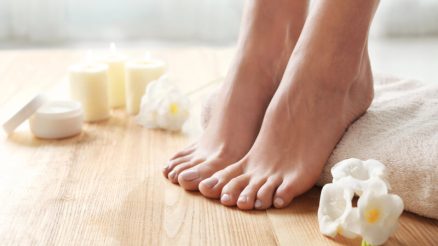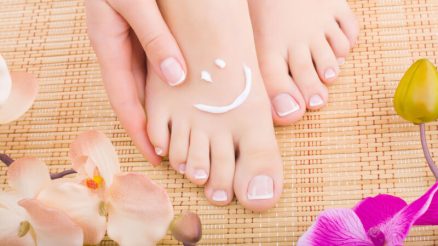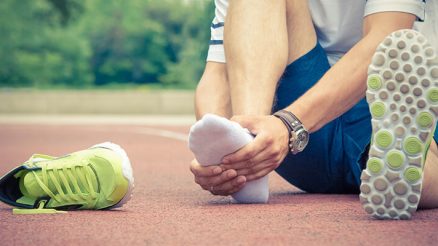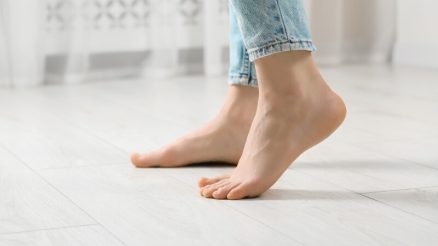Pregnancy is a time of significant changes in a woman’s body, and many women experience a variety of physical changes during this period. Among the areas of the body that can be particularly affected are the feet. As pregnancy progresses, several factors—including hormonal changes, increased weight, and alterations in body mechanics—can contribute to the development or worsening of bunions and other foot-related issues. In this article, we will explore how pregnancy affects bunions and overall foot health, and what expectant mothers can do to manage these changes.
Understanding Bunions
A bunion is a bony bump that forms at the base of the big toe, where the toe joint shifts out of alignment. This misalignment causes the big toe to angle toward the second toe, leading to a noticeable bump on the side of the foot. Bunions can cause pain, swelling, and difficulty wearing certain shoes, and in some cases, the condition can lead to reduced mobility and joint inflammation.
While bunions are often thought to be a hereditary condition, certain lifestyle factors can exacerbate the problem. During pregnancy, the risk of bunion development or worsening can increase due to a combination of physical and hormonal changes.
Factors Contributing to Bunion Development During Pregnancy
- Hormonal Changes: Pregnancy brings about a surge in the hormone relaxin, which helps to prepare the body for childbirth by loosening ligaments and soft tissues, particularly around the pelvis. While this is essential for labor, relaxin can also affect other areas of the body, including the feet. The ligaments in the feet become more relaxed, causing the arches to flatten. This flattening leads to the misalignment of bones and the formation or worsening of bunions.
- Increased Weight and Pressure: As pregnancy progresses, the body naturally gains weight, which puts added pressure on the feet. The increased weight load can cause the feet to flatten and spread, particularly the metatarsal bones, which form the base of the toes. This added strain increases the risk of bunions developing or becoming more painful, especially for women who already have a predisposition to this condition.
- Changes in Gait and Posture: As a woman’s center of gravity shifts during pregnancy, the way she walks (gait) may change. The body compensates for the growing belly and additional weight by adjusting posture and walking patterns. These alterations can place uneven pressure on the feet, aggravating existing bunions or leading to new foot issues. For example, increased pressure on the forefoot can exacerbate the misalignment of the big toe.
- Swelling and Fluid Retention: Pregnancy often causes swelling in various parts of the body due to increased blood volume and hormonal changes. This swelling can affect the feet and ankles, making them more prone to discomfort and contributing to bunion pain. Fluid retention may also lead to increased pressure on the feet, worsening the discomfort associated with bunions.
How Pregnancy Affects Foot Health in General
In addition to bunions, pregnancy can lead to a variety of other foot problems, including:
- Flat Feet: Due to the relaxation of ligaments and tendons, and the increased weight carried during pregnancy, women may experience a flattening of the arches. This can result in the condition known as flat feet, which may cause discomfort, especially during long periods of standing or walking.
- Swollen Feet and Ankles: The accumulation of excess fluid and increased pressure from the uterus can lead to swelling in the feet and ankles, commonly known as edema. This condition is especially prevalent during the later stages of pregnancy and can lead to discomfort and difficulty wearing shoes.
- Plantar Fasciitis: The added weight and changes in walking patterns during pregnancy can contribute to inflammation of the plantar fascia, the thick band of tissue that runs along the bottom of the foot. This condition, known as plantar fasciitis, often causes heel pain, especially when walking or standing for extended periods.
- Cramps: Many pregnant women experience leg cramps, particularly at night. These cramps can affect the feet and toes, sometimes leading to tightness and discomfort that can exacerbate existing foot conditions like bunions.
Managing Foot Health During Pregnancy
While the changes in foot health during pregnancy are often temporary, there are several ways to manage and alleviate discomfort associated with bunions and other foot issues:
- Wear Proper Footwear: Comfortable shoes with a wide toe box, good arch support, and cushioning are crucial during pregnancy. Avoid tight, pointy-toed shoes or high heels that can exacerbate bunions and cause unnecessary pressure on the feet. Orthotic insoles can provide additional support and alleviate discomfort.
- Foot Exercises and Stretching: Stretching exercises can help relieve tension in the feet and toes. Strengthening the foot muscles can also provide additional support, which may reduce the risk of bunion progression. Specific exercises that target the toes, arches, and calves can improve flexibility and foot alignment.
- Foot Elevation: Elevating the feet when resting can help reduce swelling and alleviate discomfort caused by fluid retention. Propping up the feet with pillows or cushions while sitting or lying down can aid circulation and reduce pressure on the feet.
- Massage and Soaking: Gently massaging the feet with moisturizing lotion can help relieve swelling and discomfort. Warm foot soaks with Epsom salt may also provide temporary relief from aches and pains caused by bunions and other foot issues.
- Podiatrist Consultation: If bunions or other foot problems become severe during pregnancy, it may be helpful to consult with a podiatrist. A foot specialist can provide tailored advice, recommend orthotic devices, or offer other treatments to alleviate pain and improve foot health.
- Weight Management: Maintaining a healthy weight during pregnancy can help reduce the strain on the feet and minimize the risk of developing or worsening bunions. It’s important to follow your healthcare provider’s advice on nutrition and weight gain during pregnancy.
Post-Pregnancy Considerations
After childbirth, some changes in foot health may resolve, but others can persist. If bunions became more pronounced during pregnancy, they may require further management postpartum. Continuing to wear supportive footwear and practicing good foot care habits can help mitigate long-term effects. In severe cases, surgical options may be considered after consultation with a specialist.
Conclusion
Pregnancy brings about many changes in a woman’s body, and the feet are no exception. The increased weight, hormonal fluctuations, and changes in posture and gait can lead to or worsen conditions like bunions, flat feet, and swelling. While these issues can cause discomfort, there are several steps that pregnant women can take to alleviate symptoms and maintain foot health. Proper footwear, stretching exercises, foot elevation, and seeking professional advice can all help to manage foot problems during this time. Most importantly, if foot pain becomes severe or persistent, it’s essential to consult with a healthcare provider to prevent complications and ensure optimal comfort throughout pregnancy.








